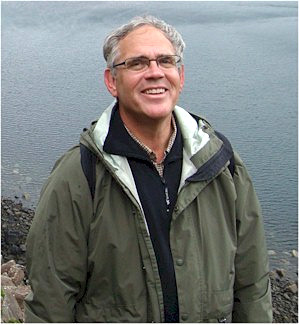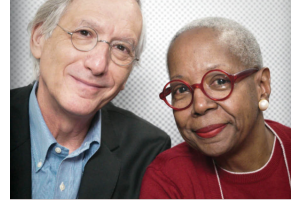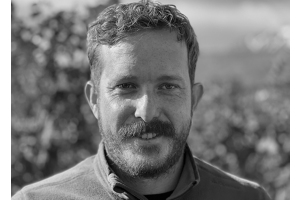
Kent Rasmussen and wife, Celia Ramsay, started their family winery in 1986 in St. Helena in the Napa Valley. They produce wines under the Kent Rasmussen and Ramsay brand wines.
Dorothy J. Gaiter speaks to California wine pioneer Kent Rassmussen about how he became a winemaker and how Napa Valley has changed.
Dorothy J. Gaiter: How'd you fall into this?
Kent Rasmussen: Oh, boy. It's been a lot of years now. I started in the wine industry in 1979 and that was a whole different time and age for California Pinot Noir. I mean I think up to that point people said California Pinot Noir and everybody kind of looked the other way and it was a challenge. It was a time when the industry was just starting to boom. It was a time where I think there was lots and lots of interest in research, in grape growing, and turning California into a real world-class producer and Pinot Noir was the real bad grape in those days. In that day and age, I mean it was the black sheep of California's industry. It was the wine that I wanted to address.
About that same time, the whole idea of cool-weather grape growing was starting up and Carneros became the talk of the town and, you know, it was a challenge and I just thought this was the place. If I'm going into the wine industry, this is where I want to go, you know.
But you picked the most difficult grape. Why'd you do that?
It was a challenge. It was fun.
You like challenges.
It was fun and I think people kind of need to understand that Napa Valley in that day and age wasn't what it is today. Napa Valley was economically a depressed area. I mean, a lot of the housing was condemned. It's hard to believe that. Buying land in Napa was very easy in those days. The area that's called Carneros now was a very cold, wind-swept, dairy farming district that was very, very derelict. You know, I remember looking at Pinot Noir and what it needed and thinking, “Okay, we can do it here,” but doing it there wasn't the risk that it would be today. I mean land was very inexpensive. If it hadn't worked out, I guess we could have grown cows on it just like had been growing on it for years.
What year was your first release?
We first started making wine in '79. We didn't actually release anything until '86, so it was a few years.
What were you doing then?
I guess you could say a learning curve.
A learning curve. Okay. So your first release was '86.
Yeah. Although I had a bottle of our 1979, oh, it was about two years ago, and I just was absolutely amazed. I mean, to think that a California Pinot could age like that. It was still drinking beautifully.
Was it beautiful?
It was really a lovely wine.
The fruit was still there?
It still had fruit, it had structure, it had good acid, it was really amazing. You know, you think about how right time, right place are important... '79 was a stunning year. We made our first wine in '79. It was great! That encouraged me to go on. If we'd made it in '80 or '81, probably we wouldn't have thought much about that area but, you know, we saw what it could do, and the same was true in 1986. It was a really, really stunning year, but '87 wasn't. So, you know, the fact that we made our first release in '86 encouraged us to keep moving.
What would you say to someone starting out today and trying to do what you did. Is it possible?
You know, when we started, my wife and I were just a couple Berkeley hippies and we really had absolutely no money and it was possible. We did it. It was ... I mean ... We were able to build a winery with absolutely nothing and you can't do that anymore. There's still a place to start. It's one of the big problems I think we're having right now in Napa is that it's a rich man's land now and it's very, very difficult to start if you're not a rich person. That's a different ethos than when we started, where just a couple Berkeley hippies could say, "Oh, we can start a winery" and do it. That isn't to say you can't do it, and it isn't to say there's anything really wrong with those people. They have ... Many of them are wanting to pursue ideals far higher than the ideals that I wanted to pursue, but you can't do it without money now days. It's just impossible.
True of so many things.
So many things.










